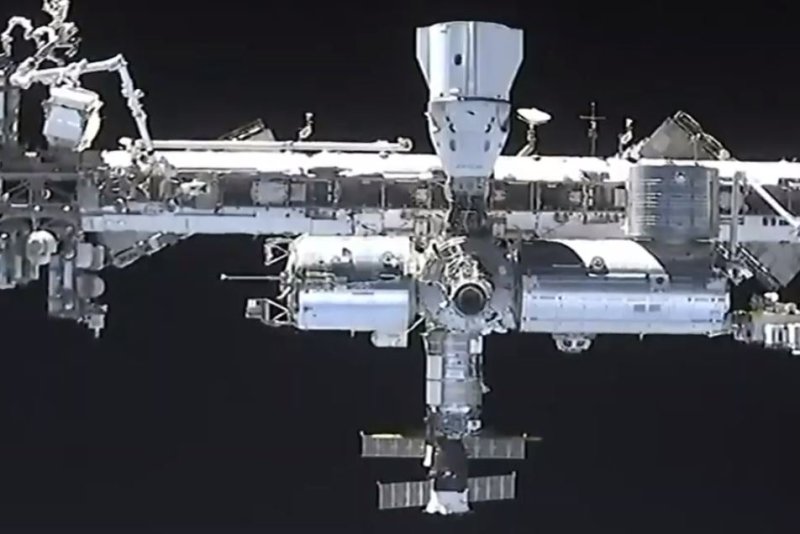
The SpaceX Dragon capsule Endeavour can be seen approaching the top of the International Space Station. The SpaceX Crew-4 mission's return home from the ISS was "waved off" Thursday due to weather concerns at the splashdown site, according to NASA and SPaceX. Photo courtesy of NASA
Oct. 13 (UPI) -- NASA and Space X mission controllers Thursday waved off the International Space Station Crew-4 undocking for a return to Earth in Dragon Freedom due to weather concerns at the Florida splashdown site.
Possible Friday docking times are "currently being assessed" according to an ISS tweet.
"NASA and SpaceX are standing down from the Oct. 13 departure opportunity for the agency's Crew-4 mission from the International Space Station due to increased winds forecast in the splashdown area," a NASA blog statement said.
Crew-4 had been expected to depart the station around 10 a.m. Thursday for a planned splashdown before 6 p.m. on the Florida coast.
According to the NASA blog statement, mission crews will meet later in the day to "determine the next target for Crew-4's undocking to begin their return trip to Earth completing a nearly six-month science mission in orbit. The next available undocking opportunity is no earlier than 11:35 a.m. EDT Friday, Oct. 14."
When Crew-4 is able to undock for the trip back to Earth, SpaceX, NASA Television, and the NASA app will provide a livestream webcast from more than 200 miles above the Earth.
The ship will undock from the station and perform several maneuvers to prepare for re-entry, including jettisoning some equipment.
According to NASA, Crew-4's Dragon undocking depends on a variety of factors, including spacecraft readiness, weather, sea states and other factors.
Aboard the returning ship are Crew-4 astronauts Kjell Lindgren, Bob Hines, Jessica Watkins, and Samantha Cristoforetti, who blasted off from Kennedy Space Center aboard a Falcon 9 rocket on April 27.
RELATED SpaceX's Crew-5 mission docks with space station
Taking their place is Crew-5 -- including mission commander Nicole Mann; NASA astronaut Josh Cassada, the pilot, as well as Japan Aerospace Exploration Agency astronaut Koichi Wakata and Roscosmos cosmonaut Anna Kikina -- which docked with the orbiting facility a week ago and now will spend the next six months in orbit.
The mission is the first for Mann, who also becomes the first Indigenous woman in space. It's also the first spaceflight for Cassada and Kikina, while it is the fifth for Wakata. On board, the astronauts will conduct hundreds of scientific experiments and technology demonstrations, including studies on printing organs in space.
No comments:
Post a Comment